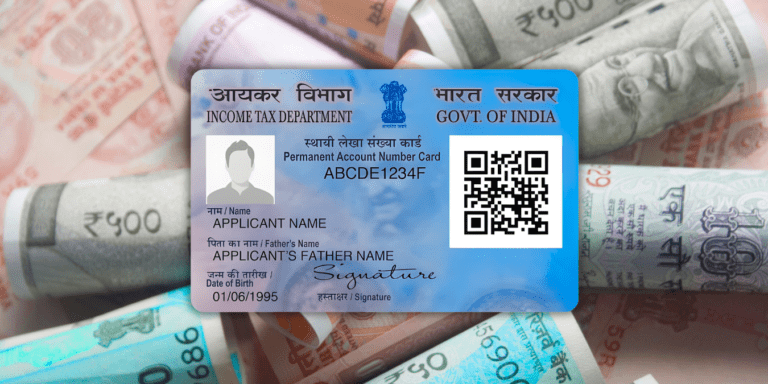
“Learn about income tax rules on bank withdrawals, including TDS under Section 194N, tax on interest income, and cash withdrawal limits. Discover how to minimize tax liability and stay compliant with the latest income tax regulations in India. Essential guide for financial planning and tax-saving strategies.”
In today’s financial landscape, understanding the nuances of income tax is crucial for effective financial planning. One area that often raises questions is the tax implications of withdrawing money from your bank account. Whether you’re withdrawing cash for personal use, business expenses, or investments, it’s essential to know how much tax you might have to pay and the rules governing such transactions. This comprehensive guide will delve into the income tax rules related to bank withdrawals, helping you stay compliant and make informed decisions.
Understanding Bank Withdrawals and Income Tax
When you withdraw money from your bank account, it’s important to recognize that the tax implications depend on the source of the funds and the purpose of the withdrawal. Here’s a breakdown of the key factors:
- Source of Funds:
- If the money in your account is from taxable income (e.g., salary, business profits, or interest income), it has already been taxed. Withdrawing these funds typically does not attract additional tax.
- However, if the funds are from untaxed or exempt sources (e.g., gifts, inheritance, or agricultural income), the tax treatment may differ.
- Purpose of Withdrawal:
- Personal use: Generally, no additional tax is levied.
- Business or investment purposes: Depending on the nature of the transaction, taxes like TDS (Tax Deducted at Source) or capital gains tax may apply.
- Type of Bank Account:
- Savings Account: Interest earned is taxable under the head “Income from Other Sources.”
- Current Account: No interest is earned, so no tax on interest.
- Fixed Deposits (FDs): Interest is taxable, and TDS may apply if the interest exceeds ₹40,000 (₹50,000 for senior citizens) annually.
Key Income Tax Rules on Bank Withdrawals
1. Cash Withdrawal Tax (Section 194N)
Introduced in the Union Budget 2019, Section 194N imposes a Tax Deducted at Source (TDS) on cash withdrawals exceeding certain limits. Here’s how it works:
- Threshold Limit: If you withdraw more than ₹1 crore in cash during a financial year, a TDS of 2% is applicable.
- Higher TDS for Non-Filers: For individuals who haven’t filed their income tax returns for the past three years and have total TDS/TCS of ₹50,000 or more, the threshold is reduced to ₹20 lakh. A 2% TDS applies on withdrawals between ₹20 lakh and ₹1 crore, and 5% on amounts exceeding ₹1 crore.
Example: If you withdraw ₹1.5 crore in cash in a year and haven’t filed your tax returns, you’ll pay 2% TDS on ₹80 lakh (₹1 crore – ₹20 lakh) and 5% TDS on ₹50 lakh (₹1.5 crore – ₹1 crore), totaling ₹4.1 lakh in TDS.
2. Tax on Interest Income
Interest earned on savings accounts and fixed deposits is taxable under the head “Income from Other Sources.” The tax rate depends on your income slab.
- Savings Account Interest: Up to ₹10,000 is exempt under Section 80TTA. Any interest above this limit is taxable.
- Fixed Deposit Interest: No exemption is available. Banks deduct TDS at 10% if the interest exceeds ₹40,000 (₹50,000 for senior citizens) annually. If you haven’t provided your PAN, the TDS rate increases to 20%.
3. Tax on Large Deposits and Withdrawals
The Income Tax Department monitors large transactions to curb tax evasion. If you deposit or withdraw more than ₹10 lakh in cash in a year, the bank must report it to the tax authorities. While this doesn’t directly result in tax, it may trigger scrutiny if the source of funds is unexplained.
4. Capital Gains Tax on Withdrawals from Investment Accounts
If you withdraw money from investment accounts like mutual funds or stocks, capital gains tax may apply.
- Short-Term Capital Gains (STCG): Taxed at 15% for equity investments held for less than a year.
- Long-Term Capital Gains (LTCG): Taxed at 10% for gains above ₹1 lakh on equity investments held for more than a year.
- Debt Funds: STCG is taxed as per your income slab, while LTCG is taxed at 20% with indexation benefits.
How to Minimize Tax on Bank Withdrawals
- Plan Your Withdrawals: Avoid withdrawing large sums of cash to prevent TDS under Section 194N. Use digital payment methods like UPI, NEFT, or RTGS for large transactions.
- File Your Tax Returns: Ensure you file your income tax returns on time to avoid higher TDS rates on cash withdrawals.
- Optimize Interest Income: Use Section 80TTA to claim deductions on savings account interest. Senior citizens can claim additional deductions under Section 80TTB (up to ₹50,000 on interest income).
- Invest in Tax-Saving Instruments: Consider investing in tax-saving fixed deposits, ELSS (Equity-Linked Savings Scheme), or PPF (Public Provident Fund) to reduce your taxable income.
- Maintain Proper Records: Keep documentation for all large transactions to explain the source of funds if required by the tax authorities.
Common Misconceptions About Tax on Bank Withdrawals
- All Withdrawals Are Taxable: Only specific types of withdrawals, such as cash withdrawals above ₹1 crore or interest income, attract tax. Regular withdrawals from already taxed income are not taxable.
- TDS Means Final Tax Liability: TDS is only a provisional tax. You can claim a refund if the TDS exceeds your actual tax liability after filing your return.
- Digital Transactions Are Always Tax-Free: While digital transactions are encouraged, they are not entirely tax-free. For example, interest earned on FDs transferred digitally is still taxable.
Recent Changes in Income Tax Rules
- Reduction in TDS Threshold for Non-Filers: The government has tightened the rules for non-filers, reducing the cash withdrawal threshold to ₹20 lakh and imposing higher TDS rates.
- Increased Use of Technology: The Income Tax Department is leveraging AI and data analytics to track high-value transactions, making it essential to maintain transparency in your financial dealings.
- Promotion of Digital Payments: To discourage cash transactions, the government has introduced incentives for digital payments, such as lower TDS rates for businesses accepting digital payments.
Understanding the income tax rules related to bank withdrawals is essential for effective financial management. While withdrawing money from your bank account is generally tax-free, certain transactions like cash withdrawals above ₹1 crore or interest income may attract tax. By staying informed and planning your finances wisely, you can minimize your tax liability and avoid unnecessary penalties.
Remember, the key to staying compliant is maintaining accurate records, filing your tax returns on time, and leveraging tax-saving instruments. If you’re unsure about the tax implications of a specific transaction, consult a tax professional to ensure you’re on the right track.
Frequently Asked Question
Q1. Is there a tax on withdrawing money from a savings account?
No, there is no tax on withdrawing money from a savings account unless it involves interest income above ₹10,000 (₹50,000 for senior citizens).
Q2. How much cash can I withdraw without paying TDS?
You can withdraw up to ₹1 crore in cash annually without attracting TDS under Section 194N. For non-filers, the limit is ₹20 lakh.
Q3. Can I avoid TDS on fixed deposit interest?
You can avoid TDS by submitting Form 15G/15H if your total income is below the taxable limit. Alternatively, you can claim a refund while filing your tax return.
Q4. Are bank transfers taxable?
No, bank transfers are not taxable. However, the source of funds must be legitimate and accounted for.
Q5. What happens if I don’t file my tax returns?
Non-filers may face higher TDS rates on cash withdrawals, penalties, and scrutiny from the tax authorities.
-
22K Gold Price Hyderabad Bengaluru Today: Compare with Delhi Mumbai for Smart Buys
Gold and silver prices in India on February 25, 2026, show modest gains amid global uncertainties and local
-
Indian Stock Market Trends: Is This The Start Of A New Cycle For Sensex, Nifty 50 And Bank Nifty?
Indian equities are entering Wednesday, 25 February 2026 in a fragile but opportunity-rich zone—after a sharp sell-off, solid
-
Why Is the Stock Market Falling Today? Nifty Below 25,500 and 5% Crash in IT Explained
Nifty crashed 1% and IT stocks collapsed 5% today — but the real reason will shock you. An
































